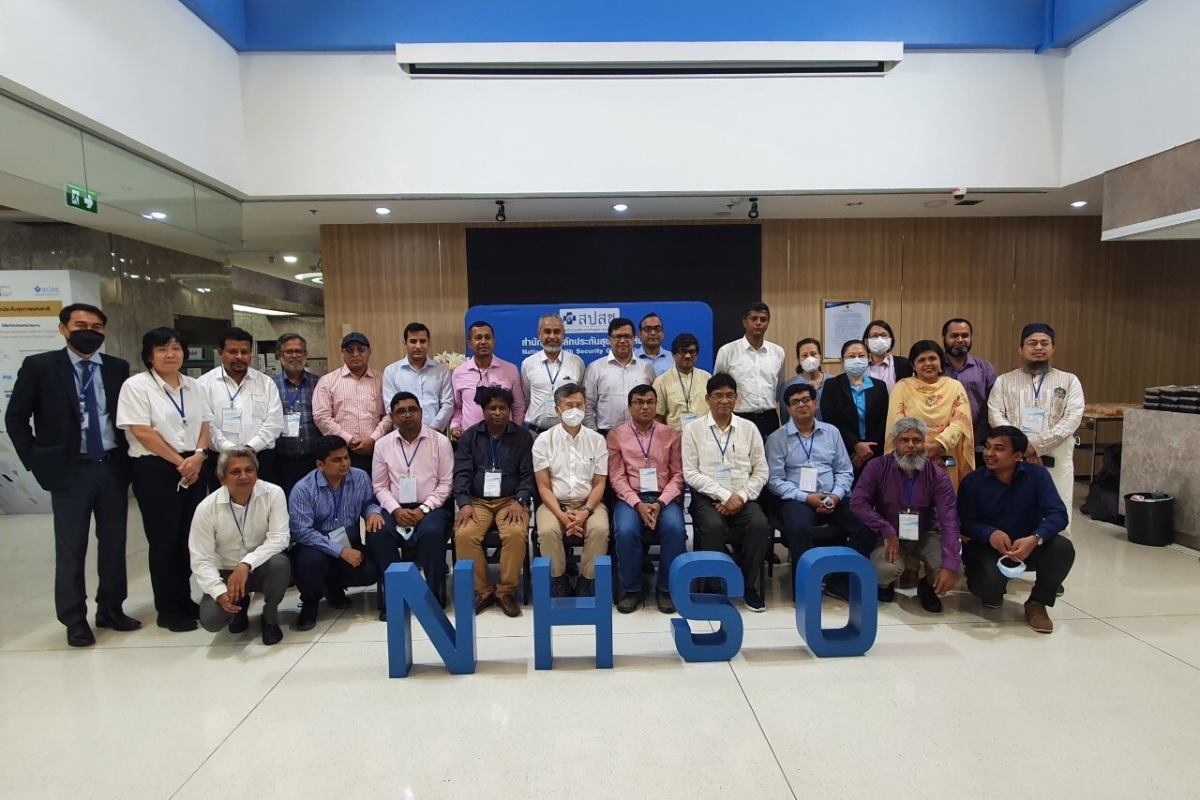[NEWS] Training on transforming health financing towards Universal Health Coverage

Training on transforming health financing towards Universal Health Coverage
Background
Bangladesh government adopted a health care financing strategy 2012-2032 in 2012 to advance the progress towards universal health coverage. This strategy sketched a roadmap to provide financial risk protection to different segments of population (poor, non-poor informal sector and formal sector) through several health protection schemes. However, no significant progress has been made as planned in the strategy. So far, a pilot of a health protection scheme for the people below poverty line named ‘Sahathay Shurokkha Kormoshuchi (SSK)’ is initiated in three sub-districts of the country covering 80,000 population with a comprehensive benefit package of inpatient health services. The scheme is yet to scale up in 8 more sub-districts in 2022. Government is also planning to introduce social protection schemes for civil servants and other formal groups.
At present, the current health expenditure accounts only 2.7 % of GDP, while domestic government's health expenditure in relation to GDP remains only 0.42% placing Bangladesh among the countries that least spends on health globally. Public funds for health are the main pre-payment mechanism of risk-pooling in Bangladesh which constitutes 23% of total health expenditure. Due to insufficient public financing, households paying fees at the point of service (i.e. out of pocket), constitute the main source of financing for health in Bangladesh comprising 68.5% in 2020. consequently, 24.9% people face catastrophic expenditure and around 7.0% of people are being pushed into the poverty every year in Bangladesh due to health care expenditure.
Recently, a greater momentum has been created in the country to strengthen the health financing functions as a part of health financing reform towards achieving universal health coverage. Health Economics Unit (HEU) of MOHFW has also taken initiatives to review the health care financing strategy as the prior step of revising the current strategy. However, the reform process requires strong political buy-in of the new approaches in the first place. As well, there is critical gaps in knowledge and ‘technically-know how’ among the key stakeholders for planning and implementing alternative health financing mechanisms.
To fill the critical gaps in knowledge and capacity, WHO Bangladesh intends to provide technical assistance to the government through sharing global knowledge and experience and building institutional capacity towards country’s health financing reforms. Thailand has widely been recognized as one of the successful upper middle-income counties, proved their competence in reforming health financing within their country context and managed to make significant progress towards achieving universal health coverage. Therefore, WHO Bangladesh plans to link the MOHFW of Bangladesh with a health policy and research institute and the National Health Security office of Thailand to establish cross country Knowledge and experience sharing opportunity.
In this regard, WHO Bangladesh in collaboration with Health Economics Unit(HEU), MOHFW, International Health Policy Program of Thailand with its vast experience in supporting the capacity building of low and middle income countries in the region and beyond on health policy process, systems building and implementation of strategic purchasing mechanism as one of the potential institutes to support Bangladesh in its journey of advancing UHC and Health Financing reforms.
The Public Health System in Bangladesh
The health system of Bangladesh is highly centralized with limited authority delegated to the local level and the MoHFW acts as the central authority with main roles of policy formulation, planning, as well as regulating the both the public and private health systems. The services are managed through Health Service Division and Medical Education and Family Welfare division of MOHFW. The Directorate General of Health Services (DGHS), of Health Service Division, is the lead implementing agency that manages public health services from central to grassroot level. Public financing in Bangladesh is tax-based. The operating budgets are channeled to the facilities based on input-based allocations (i.e. bed numbers, the number of the health workforce etc), while the development budget is channeled through the operational plans of vertical programmes.
